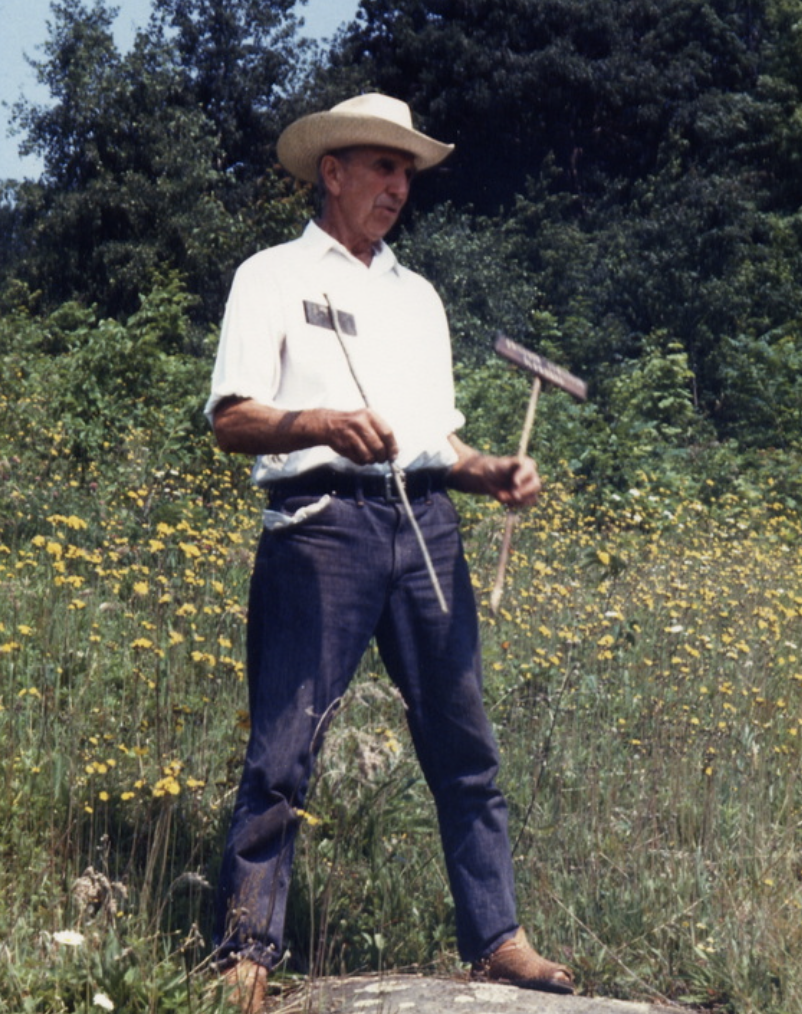Lee Lattimer, Landis Historian, is transcribing an unpublished manuscript by the Arboretum’s founder, Fred Lape, titled “The Year Everything Changed.” In this excerpt, Lape is writing about the late 1940s, when he was still working the farmland that became the George Landis Arboretum.

Certainly I was beginning to enjoy farming in those years. I enjoyed much of the outdoor work, particularly haying, riding around a field on a tractor on a sunny blue-skied day with the cumulus clouds, watching the shadows of the clouds pass over the hills of the lower Schoharie Valley, or cocking up hay in the fields for drying, with the smell of freshly cut hay lying over the fields. During lambing time, too, it was a delight to walk out to the barn on a quiet winter night and see the stars glittering in the frosty sky overhead, or later to see Venus as a morning star just over the eastern horizon.
If I was enjoying farming so well, why did I not give up my almost primitive method of farming, buy a tractor and new machinery, and transform the farm into a progressive dairy farm like those of my neighbors, with thirty cows and a milking machine and a new barn?
I didn’t do it for two reasons. One was that I saw my nearest neighbors, the Parkers, killing themselves by over-work on just such a farm. Looking at them, I saw the danger ahead if I made the change. I saw that the day of the one-hundred acre farm was over, except by a return to self-sufficiency. Successful modern agriculture is built upon machinery and specialization. It has no place for self-sufficient units like the farm of my childhood. Hard work is eliminated. Cows are milked by machines, plowing and cultivation are done by machines, weeding is done by chemicals. Diversity also is eliminated.
The trouble is that machines and chemicals cost money, and a hundred acre holding will not in the end keep up with the cost of constant new machinery and replacement. A good tractor can easily service three hundred acres, which will support it. Plows and cultivators, harvesting machines, hay balers will also serve three hundred acres, but again a hundred acres will not support them with their constant upkeep and replacement. And by the time a herd of cows is fed by corn and wheat raised on the huge units of Iowa and Nebraska, that same grain having gone through several hands for profit, the profits to the hundred acre farmer in New York are lean.
. . . .
The other reason I did not change my method of farming was my growing dissatisfaction with the culture into which I was born, and a desire to isolate myself from certain features of it. My retreat to the farm in the thirties had been a first minor step. But the period after the Second World War saw perhaps the most complete development of commercialism the United States had ever produced. More and more money became the criterion of success. It produced reaction, the hippies, they, like me, rebels, but in their way, not mine. I was willing to accept responsibility, but not to the extent of forcing either democracy or technology upon the whole world, an aim whose value I thought questionable. We were for the moment the strongest nation in the world. The elevation went to the head of most of our leaders and politicians. Even such a well-meaning and often far seeing altruist as Norman Cousins was caught by it. We were the light of the future. It was our duty to lead all less fortunate nations, cultures, individuals, to our high standard. But high standard of what? Did we have enough to offer to make us that arrogant and that valuable to humanity? I doubted it.
So I was satisfied to keep on running the farm in my own semi-primitive way. It offered me a healthy way of living with enough leisure time in which to write. As long as I did not try to make a thriving business out of it, it did not lead to exhaustion. It allowed me to live partially out of the mainstream of commercial hell-bent-for-success America. I was satisfied.
